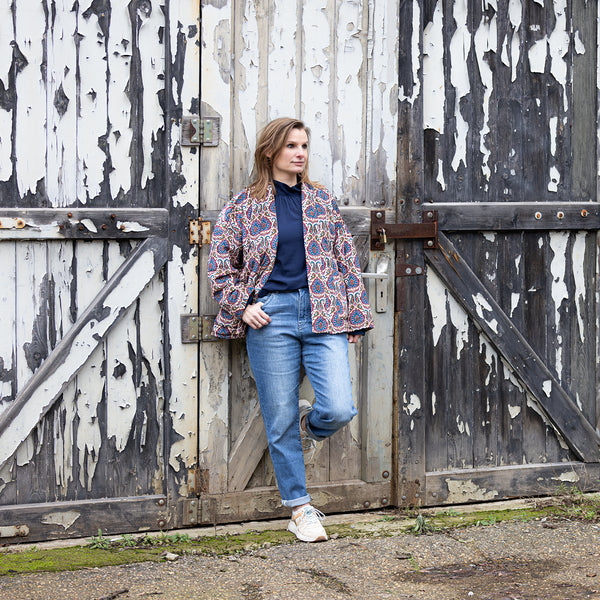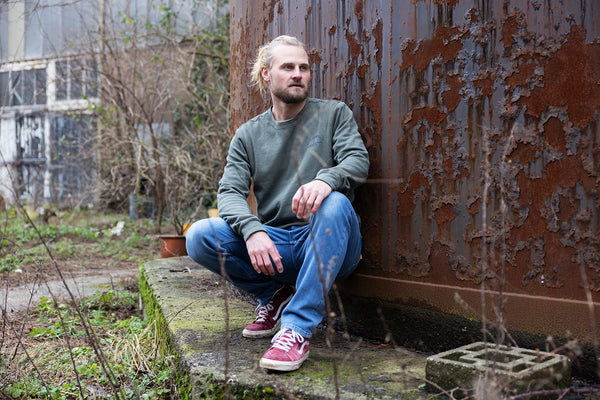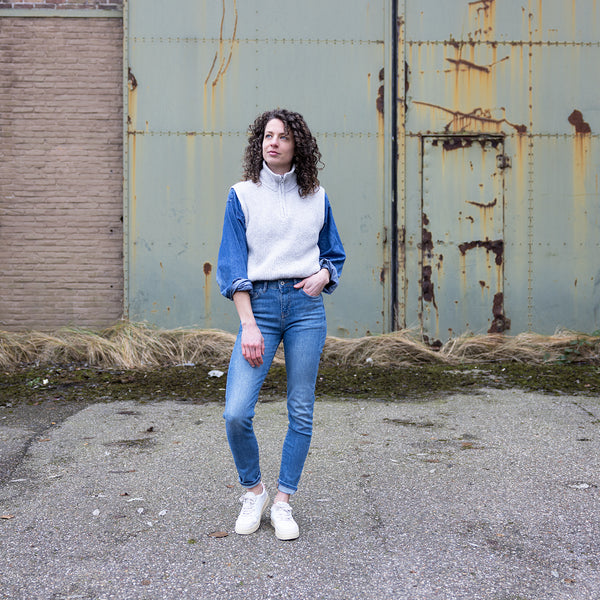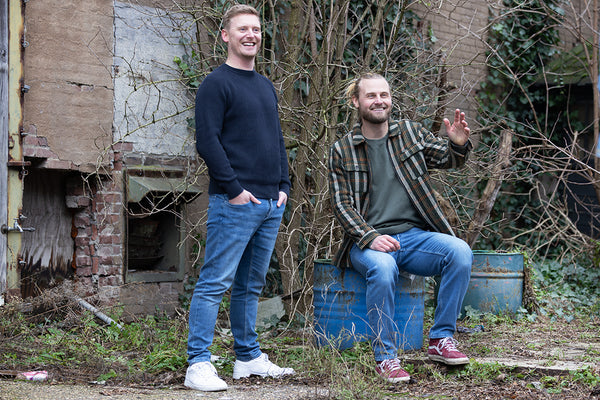Duurzame Jeans: Biologisch en gerecycled katoen in onze kleding
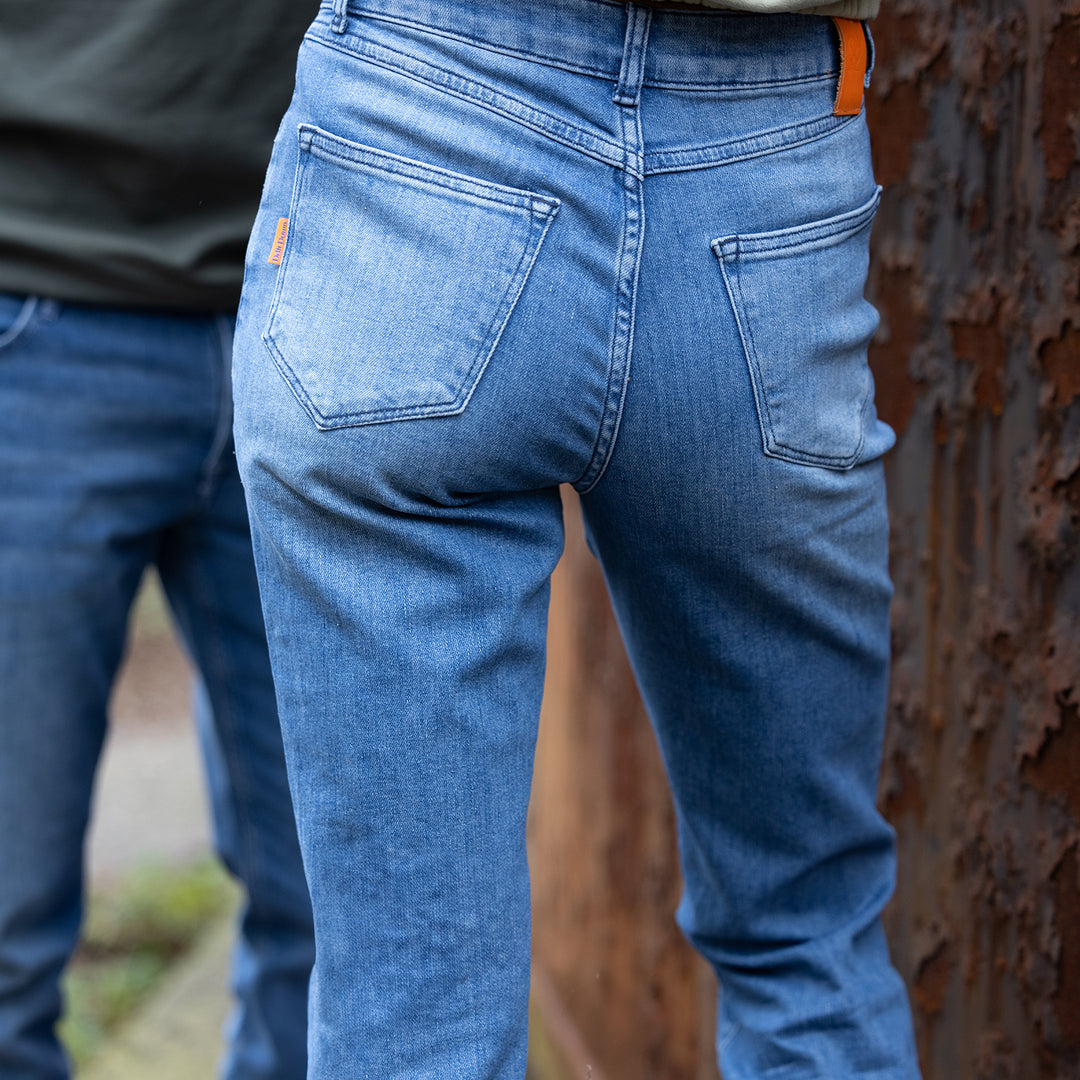
Delft Blue is Green
At Delft Denim, we love stylish and timeless jeans, but we also care about a healthy world and want a good future for our children. That's why we make sustainable jeans.
Our pants are made from organic and recycled cotton and a pinch of recycled elastane. The production of our fabrics uses 55% less water and emits 31% less CO2. This mix not only reduces the impact on the environment but also means that when you put on the pants, you think: 'Ahhhh, fits like a glove.' A win-win situation.
"With our blue pants, you make a green choice and it feels good. Your children and grandchildren will be grateful to you."
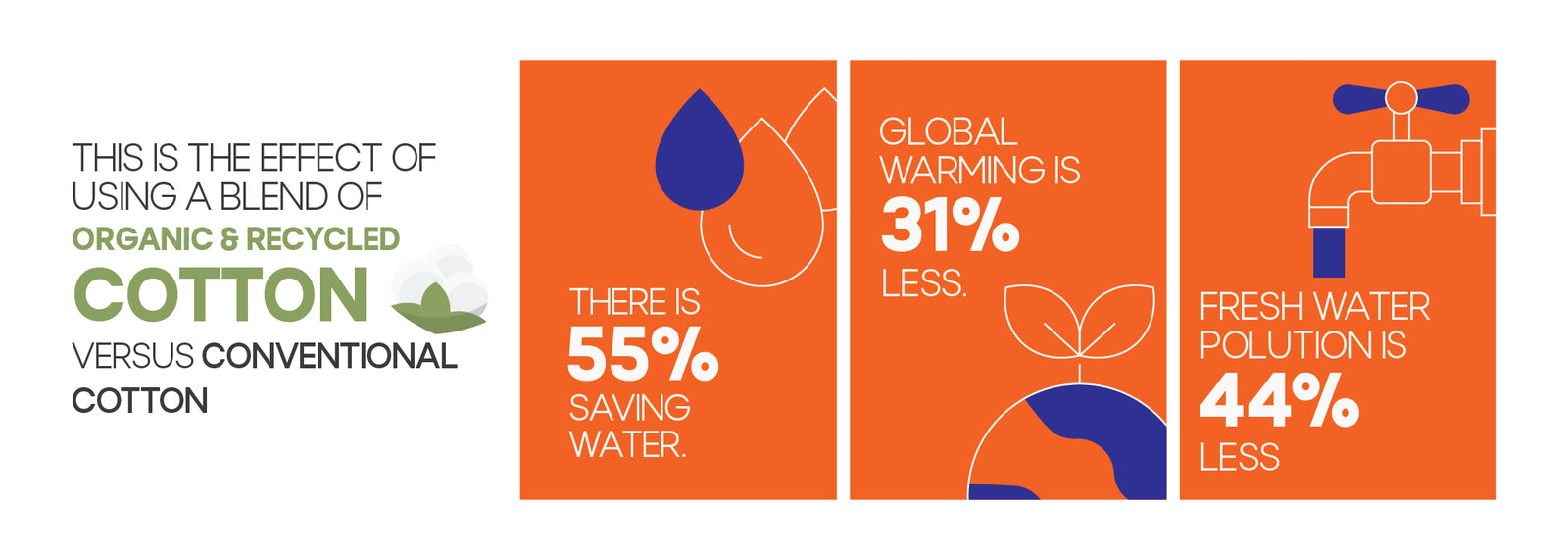
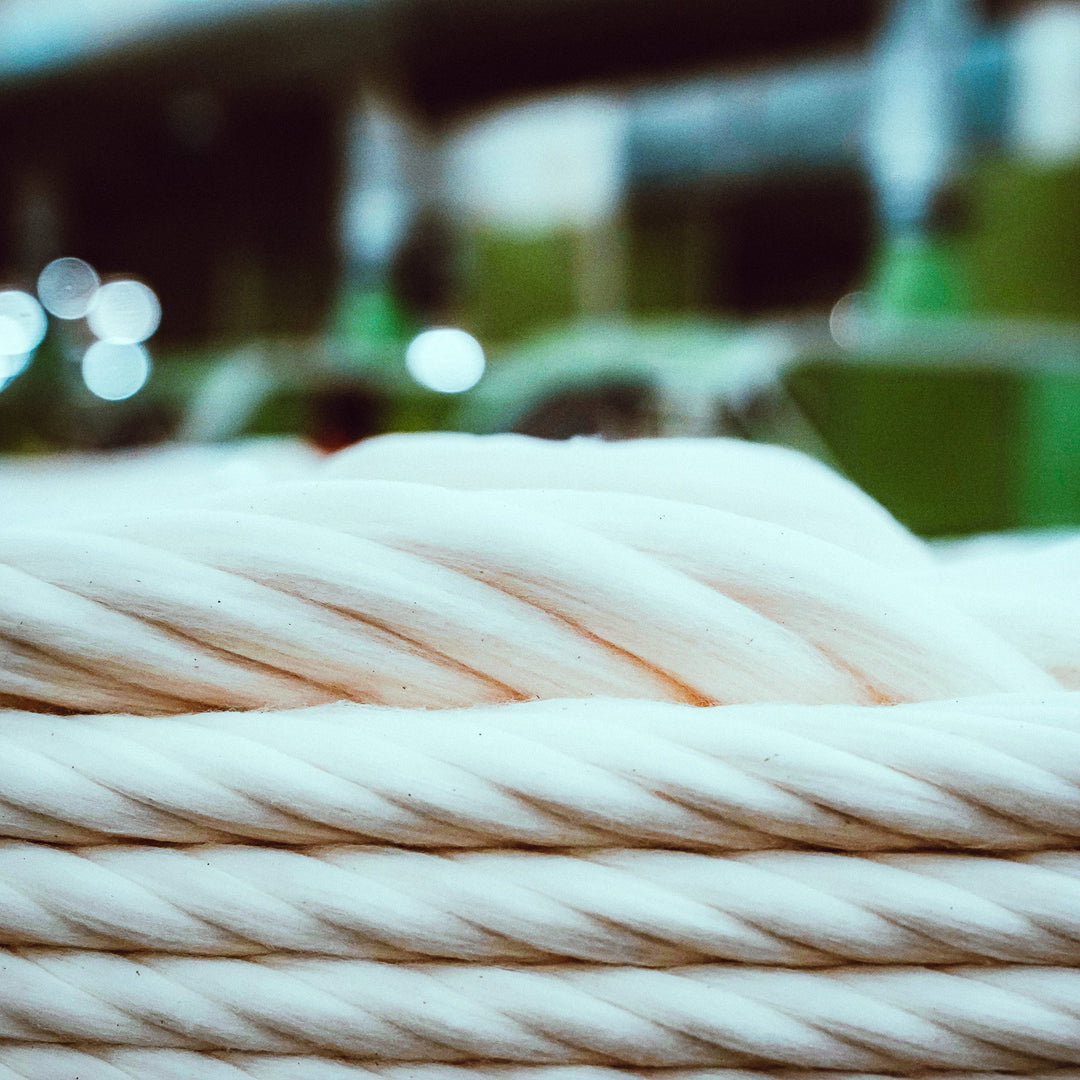
"Look, this is the foundation: pure cotton. The first fibers of every pair of jeans. We leave the growing and twisting to the experts, but when it comes to choosing, we are picky. Just like a Michelin chef who only uses the very best ingredients. Our jeans start with this thread and are crafted into jeans by artisans who understand their trade."
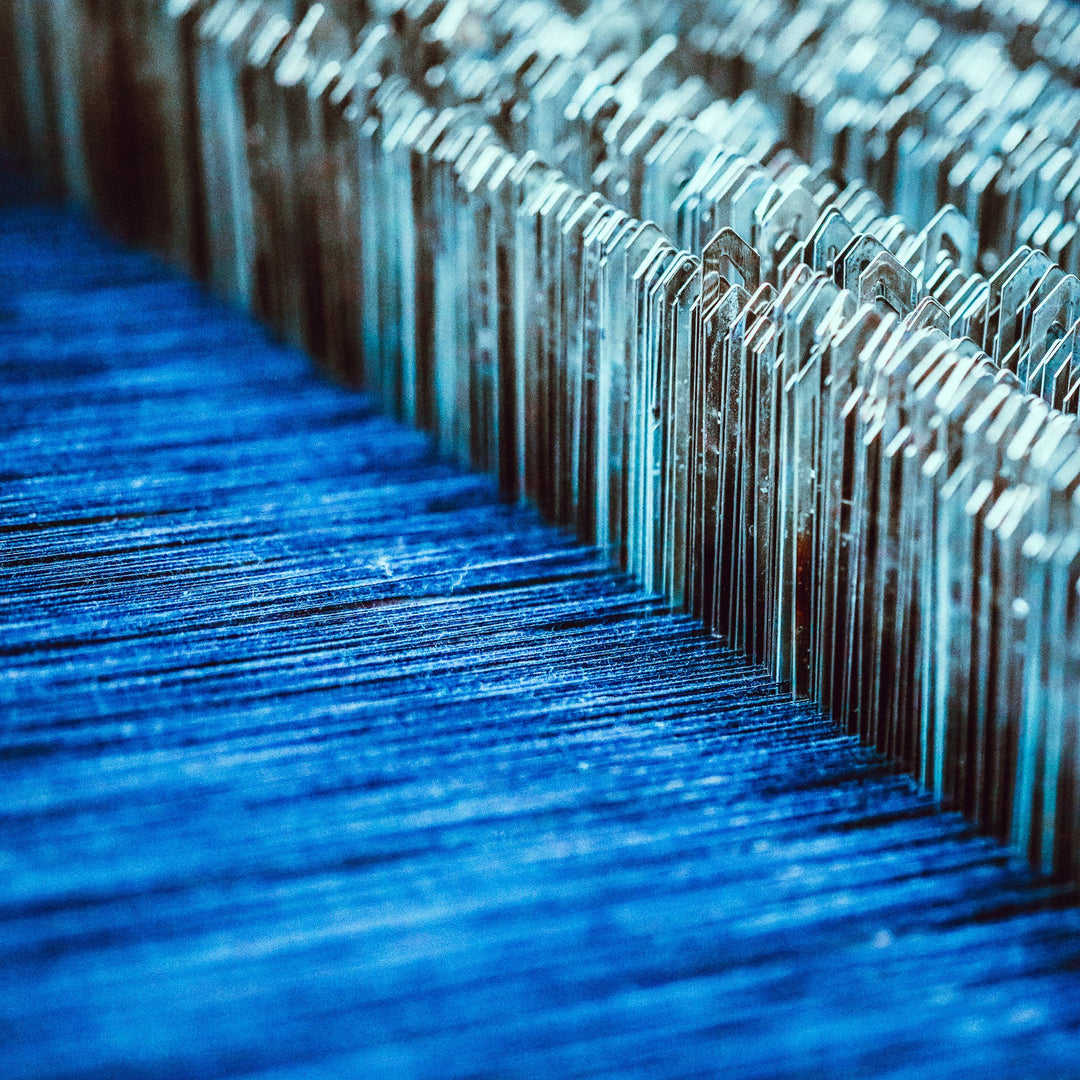
There you have it. The blue that doesn't just fall from the sky. The blue tint in our jeans is carefully crafted, with the precision of a master painter, like Vermeer. We look, test, compare, and only nod when it's right. At Delft Denim, it's not just about any blue. It's about the right tone, the perfect foundation for a timeless pair of trousers.
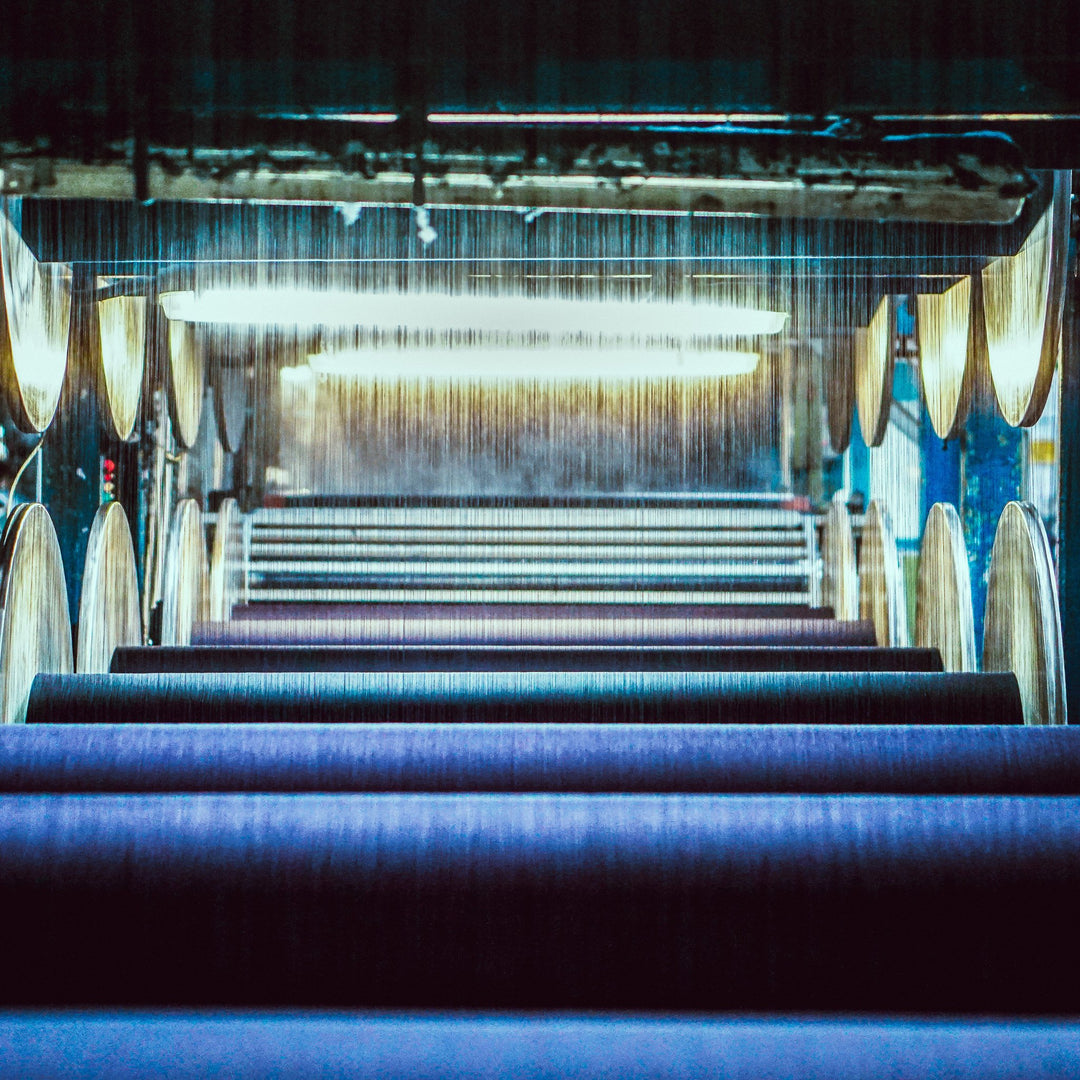
Denim weaving is a craft. A trade that has been passed down for generations. We don’t do it ourselves, but we know exactly who can. Craftsmen who work with care, precision, and passion. Who make sustainable choices and deliver quality that we stand behind. We know them, we trust them. Because at Delft Denim, we choose our partners the way we choose our friends - with attention, respect, and always with an eye on the future.
FAQ's
Sustainability is our foundation. That’s why we choose a mix of organic and recycled cotton, combined with recycled elastane. Just that little bit of stretch for extra comfort, without compromising on quality or impact. Our pants are woven by an innovative fabric producer who continuously makes their production process more sustainable: less water, less waste, more future.
Moreover, we keep the lines short. Our fabric manufacturer grows its own cotton and is located close to the jeans producer. This way, our pants travel as few kilometers as possible before they reach you.
Organic cotton grows as it is meant to; without harmful pesticides, herbicides, or synthetic fertilizers. Grown with respect for the soil, the ecosystems, and the people who work with it. It is not only better for the planet, but also for the quality of the fabric. Less water, no toxic chemicals, but a sustainable foundation for fair jeans. Because true sustainability starts at the core.
Want to know more? Read our blog about organic cotton.
"We give cotton a second chance, even before it becomes waste. Our pre-consumer recycled cotton comes from cutting scraps and leftover fabrics; material that would normally be lost in the production process. Instead of throwing it away, we collect and reuse it. This way, we reduce waste and extend the life cycle of the cotton. Beautiful, right?"
Do you want to know more about the sustainable choices behind our jeans? Discover how organic cotton is not only stylish but also friendly to the planet in this blog. Or read more about how recycled cotton contributes to a more sustainable future in our blog post about recycled cotton.


